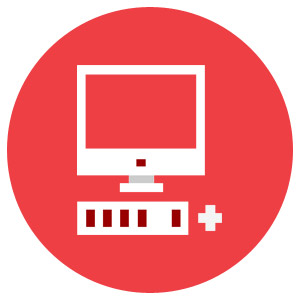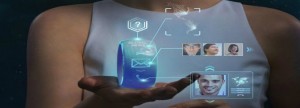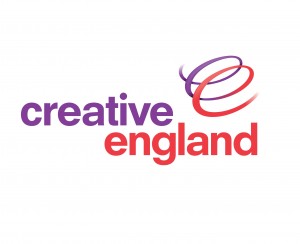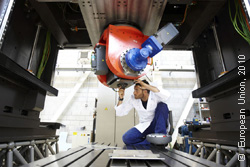
Register now for the upcoming events below which will highlight and provide information about Innovate UK funding competitions opening in March 2015.
Digital Business Drop-in – 19 February 2015
Come along to an informal and short Digital Business Drop-in session for an opportunity to meet the representatives of the Innovate UK and the organisations working in partnership to hear about upcoming funding and support available for digital companies and also the chance to showcase your business in a 5 minute presentation.
Register at: https://www.etouches.com/115025
Attend the Fintech Innovation Contest Assembly – 25 Feb 2015
This facilitated knowledge sharing and networking event, organised by IC tomorrow, a digital programme for Innovate UK, and the Knowledge Transfer Network brings together leading industry experts to explore the challenges and opportunities around innovation in financial technologies. There will also be the chance to find out about the upcoming launch of IC tomorrow’s funded ‘Financial Technologies Innovation Contest.
If you have technology or expertise relevant to the financial services industry, or if you are interested to find out about how to navigate this expanding market, then this free evening event is for you. This session provides the opportunity to meet with entrepreneurs, brands, academics, technologists, designers, and thought leaders across a range of financial services sectors.
Register at: https://www.eventbrite.com/e/fintech-assembly-registration-15426001586
£175K Financial Technologies Innovation Contest
The IC tomorrow Financial Technologies innovation contest will offer a total of £175k to businesses to encourage innovation within Financial Technologies. Through a range of challenges, including themes of Education, Cyber Security, Transactions, Personal Finance Management, Compliance and Regulation, IC tomorrow are looking for innovative proposals from companies with digital solutions relevant to these themes within the financial sector.
The briefing event will provide an opportunity to get insight about the challenges from our challenge partners and all you need to know about the application process for our Financial Technologies Innovation Contest.
London: 04 March 2015 – https://www.etouches.com/118520
Online Webinar: 04 March 2015 – https://www.eventbrite.co.uk/e/online-webinar-financial-technologies-innovation-contest-briefing-registration-15794522843
Cardiff: 05 March 2015 – https://www.eventbrite.co.uk/e/financial-technologies-innovation-contest-briefing-cardiff-registration-15749448023
Edinburgh: 10 March 2015 – https://www.eventbrite.co.uk/e/financial-technologies-innovation-contest-briefing-edinburgh-registration-15749741902
Belfast: 11 March 2015 – https://www.eventbrite.co.uk/e/financial-technologies-innovation-contest-briefing-belfast-registration-15749951529
Using Personal Data to Improve User & Customer Experience
London: 17 March 2015 – https://www.eventbrite.co.uk/e/using-personal-data-to-improve-user-customer-experience-briefing-london-registration-15750410903
Manchester: 19 March 2015 – https://www.eventbrite.co.uk/e/using-personal-data-to-improve-user-customer-experience-manchester-registration-15750960547
Edinburgh: 20 March 2015 – https://www.eventbrite.co.uk/e/using-personal-data-to-improve-user-customer-experience-briefing-edinburgh-registration-15750770980
£4M Protecting Data in Industry
Innovate UK is to invest up to £4 million in collaborative research and development (R&D) projects that tackle the growing risks of disruption to internet-enabled businesses and their digital supply chains.
With the Internet of Things providing new sources of data and end-users’ ever-increasing digital footprint, it is difficult to adequately protect the interests of a business, industry or sector. There is also a lack of understanding of the effects disruption may have. Desired proposals would address the challenge of protecting a business, industry or sector from digital disruption that could compromise data across the digital supply chain.
Belfast: 25 March 2015 – https://www.eventbrite.co.uk/e/protecting-data-in-industry-briefing-belfast-registration-15751274486
Cardiff: 30 March 2015 – https://www.eventbrite.co.uk/e/protecting-data-in-industry-briefing-cardiff-registration-15751564353
London: 31 March 2015 – https://www.etouches.com/118529
Edinburgh: 01 April 2015 – https://www.eventbrite.co.uk/e/protecting-data-in-industry-briefing-edinburgh-registration-15751602467
Innovation in Retail Speed Networking – 31 March 2015
If you are an SME or start-up with an innovative product in the Retail space then this free evening event is for you.
The event will offer chosen companies a series of one-to-one sessions with major retail brands including Argos, John Lewis, Snow & Rock and Liberty of London. The speed networking format has been designed to help connect start-ups and SMEs with larger commercial partners to fuel understanding and enable partnerships. We have up to 15 places available for the most innovative digital companies working in this space.
The aim of this event is to explore opportunities for innovation throughout the Retail industry, from ecommerce & payment through to aspects such as data analytics & personalisation & supply chain management.
Apply here: https://ictomorrow.innovateuk.org/innovation-in-retail-networking



























 Seeing the fruits of your labour in Bangladesh
Seeing the fruits of your labour in Bangladesh Exploring Embodied Research: Body Map Storytelling Workshop & Research Seminar
Exploring Embodied Research: Body Map Storytelling Workshop & Research Seminar Marking a Milestone: The Swash Channel Wreck Book Launch
Marking a Milestone: The Swash Channel Wreck Book Launch No access to BRIAN 5-6th February
No access to BRIAN 5-6th February ECR Funding Open Call: Research Culture & Community Grant – Application Deadline Friday 12 December
ECR Funding Open Call: Research Culture & Community Grant – Application Deadline Friday 12 December MSCA Postdoctoral Fellowships 2025 Call
MSCA Postdoctoral Fellowships 2025 Call ERC Advanced Grant 2025 Webinar
ERC Advanced Grant 2025 Webinar Update on UKRO services
Update on UKRO services European research project exploring use of ‘virtual twins’ to better manage metabolic associated fatty liver disease
European research project exploring use of ‘virtual twins’ to better manage metabolic associated fatty liver disease